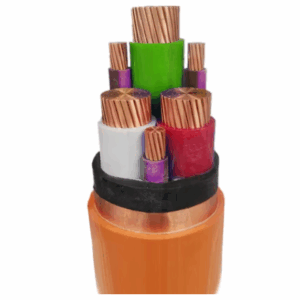
BTTVZ - PVC Sheathed Mineral Insulated Cable
Mineral insulated cable (MICC cable), also known simply as mineral insulated cable (MI cable), is a high-performance electrical cable designed for extreme environments where fire resistance, durability, and long-term reliability are critical. This type of cable is constructed using copper conductors insulated with compressed magnesium oxide (a mineral), all encased in a seamless copper sheath.
Due to its unique construction and exceptional fire-resistant properties, mineral insulated cables are widely used in critical facilities such as hospitals, airports, petrochemical plants, tunnels, and high-rise buildings, where power continuity and safety are non-negotiable.
1. What is a Mineral Insulated Cable?
A mineral insulated cable is a type of electrical cable where inorganic mineral insulation (magnesium oxide) replaces the traditional plastic or polymer insulation. This mineral material is non-combustible, making MICC cables ideal for fire-critical applications.
Key characteristics of mineral insulated cables include:
Fireproof insulation (cannot burn or emit toxic smoke).
Long service life, even in harsh industrial environments.
High-temperature resistance (up to 250°C continuous operation, short-term up to 1000°C).
2. Construction and Design of Mineral Insulated Cables
The construction of a mineral insulated cable is unique and consists of three main components:
Copper Conductors
High-purity copper conductors provide excellent electrical conductivity and heat resistance. Available in single-core or multi-core designs for different applications.
Magnesium Oxide Insulation
The space between the copper conductors and the sheath is filled with compressed magnesium oxide (MgO) powder. This mineral insulation provides exceptional fire resistance and dielectric strength.
Copper Sheath
The outer sheath is made of seamless copper tubing, offering mechanical strength, moisture resistance, and EMI shielding. For added protection, some MICC cables include a PVC over-sheath (e.g., BTTVZ type).
3. Types of Mineral Insulated Cables
There are several types of MICC cables designed for different environments:
Single-Core MICC Cable: Best for single circuits or custom installations.
Multi-Core MICC Cable: Ideal for control and instrumentation applications.
PVC-Sheathed MICC Cable: Adds extra moisture and chemical protection.
Armored Mineral Insulated Cable: Incorporates steel wire armor for enhanced mechanical protection.
4. Key Advantages of Mineral Insulated Cables
1. Superior Fire Resistance
Mineral insulation cannot burn or emit toxic fumes, ensuring critical systems like fire alarms and emergency lighting remain operational during a fire.
2. Extreme Temperature Performance
MICC cables can operate in environments up to 250°C continuously, making them suitable for industrial and petrochemical processes.
3. Mechanical Strength & Longevity
The robust copper sheath resists crushing, impact, and vibration, ensuring decades of reliable service.
4. EMI Shielding
The copper sheath acts as a built-in electromagnetic shield, preventing interference with sensitive electronics.
5. Moisture & Chemical Resistance
Ideal for outdoor, marine, or chemical-rich environments where other cables may fail.
5. Applications of Mineral Insulated Cables
Mineral insulated cables are the preferred solution in critical safety and power systems:
Fire alarm systems & emergency lighting
High-rise building infrastructure (elevators, fire pumps)
Petrochemical and industrial plants
Power generation facilities (nuclear, thermal, renewable)
Airports, tunnels, and metro systems
Instrumentation and control wiring
6. Installation & Termination of Mineral Insulated Cables
Installation of MICC cables requires proper techniques to maintain fire resistance and moisture protection:
Special termination kits are needed for moisture-proof ends.
Proper bending radius must be followed to avoid damaging the mineral insulation.
Secure cable supports are essential due to the weight and rigidity of the cable.
7. Standards and Compliance
Mineral insulated cables comply with stringent safety standards, including:
IEC 60702
BS 6207
BS EN 50200 PH (fire integrity)
Low smoke and halogen-free certifications
Manufacturers often maintain ISO 9001 certification and undergo rigorous third-party testing to ensure consistent performance.
8. Selection and Sizing
When choosing a mineral insulated cable, consider:
Voltage rating (300/500V, 600/1000V, or higher).
Current carrying capacity (consult manufacturer ampacity charts).
Environmental conditions (temperature, chemical exposure).
Circuit integrity requirements (fire alarm or emergency systems).
9. Cost and Long-Term Benefits
Although MICC cables have a higher upfront cost, they offer lower lifecycle costs due to:
Minimal maintenance.
Long service life (up to 50+ years).
Reduced downtime and higher safety compliance.
Conclusion
A mineral insulated cable (MICC cable) is the gold standard for safety, fire resistance, and reliability. From industrial plants to high-rise buildings and critical infrastructure, these cables are the best choice for applications where failure is not an option.
If you need fireproof, high-performance wiring, a mineral insulated cable is the ideal solution. Ensure proper selection, termination, and installation to maximize the cable’s full potential and decades of reliable performance.

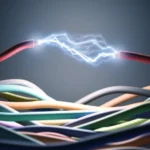

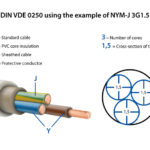
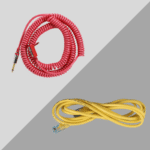
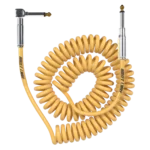
1 comment
електрически скари и барбекюта 07/20/2025
Its such as you read my mind! You appear to understand a lot approximately this, such as you wrote the ebook in it or something. I think that you simply could do with a few % to pressure the message home a bit, however instead of that, this is excellent blog. An excellent read. I'll certainly be back.